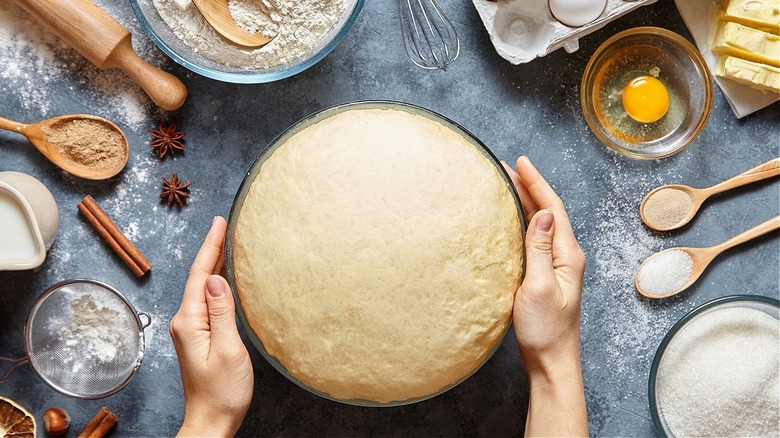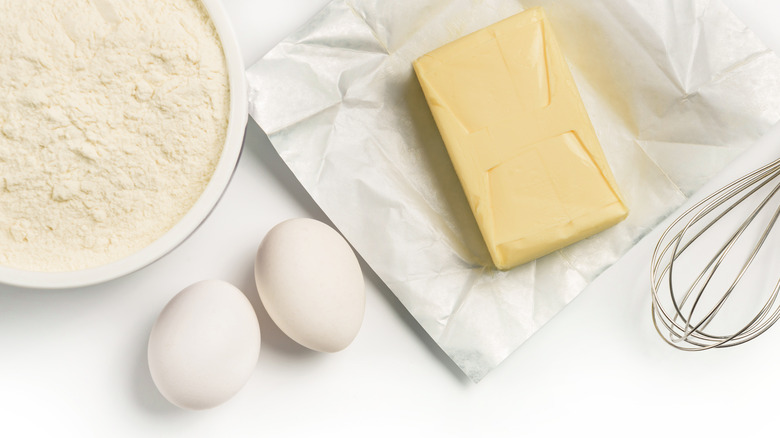The Best Tip For Homemade Dough You Aren't Using
Homemade pastry, bread dough, or cake batter is an art, and every artwork is unique, leaving interpretation to the beholder, but baking is not that kind of art. When the dough flops, refuses to rise, and comes out of the oven as dense as a brick — the only interpretation for it is "disaster."
America has a robust and well-anchored baking culture, with items like apple pie, YumYum Cake, beignets, and bagels mirroring aspects of American history, per Lasalle University. The culture is still very much alive today, and proof of the dough-making demographic lies in a survey by Nielsen-Massey (via PR Newswire): more than half of the country's millennials used baking to bond with their loved ones. The irony is, despite these statistics, America does not come near a country like Germany (the number-one baking country in the world), per National Master. In fact, it does not even make it into the top thirty.
Perhaps just coincidentally, Germans consume 13 pounds (via Statista) of butter per year, compared to America's annual 6.3 pounds per capita (via Statista). Could there be a link between the European country's butter and baking habits?
The role that butter plays in the dough
As we all know, the relationship between butter and baking is not exclusive to Germany. The two (baking and butter) have a relationship that is no less than 500 years old, per History Extra. More than just contributing luxurious flavor, butter plays a role in the mechanical processes determining the desired textures in the dough, per Baker Bettie.
According to the Institute of Culinary Education, butter's water component evaporates while the dough bakes but remains trapped, creating flimsy, moist layers. In so doing, it slows the formation of gluten and rising (via Foodal) resulting in a softer texture to the finished product. In the case of a pie pastry, the trapped moisture dissipates as it cools, turning the dough into crumbly, confetti-like flakes.
The application method counts for a lot; the best butter for baking is hard, but you can achieve this by putting it into the freezer, per Reader's Digest, until it is hard enough to use on a grater. Grate it into the ingredients instead of scooping in dollops of soft butter, and mix for the best results.

